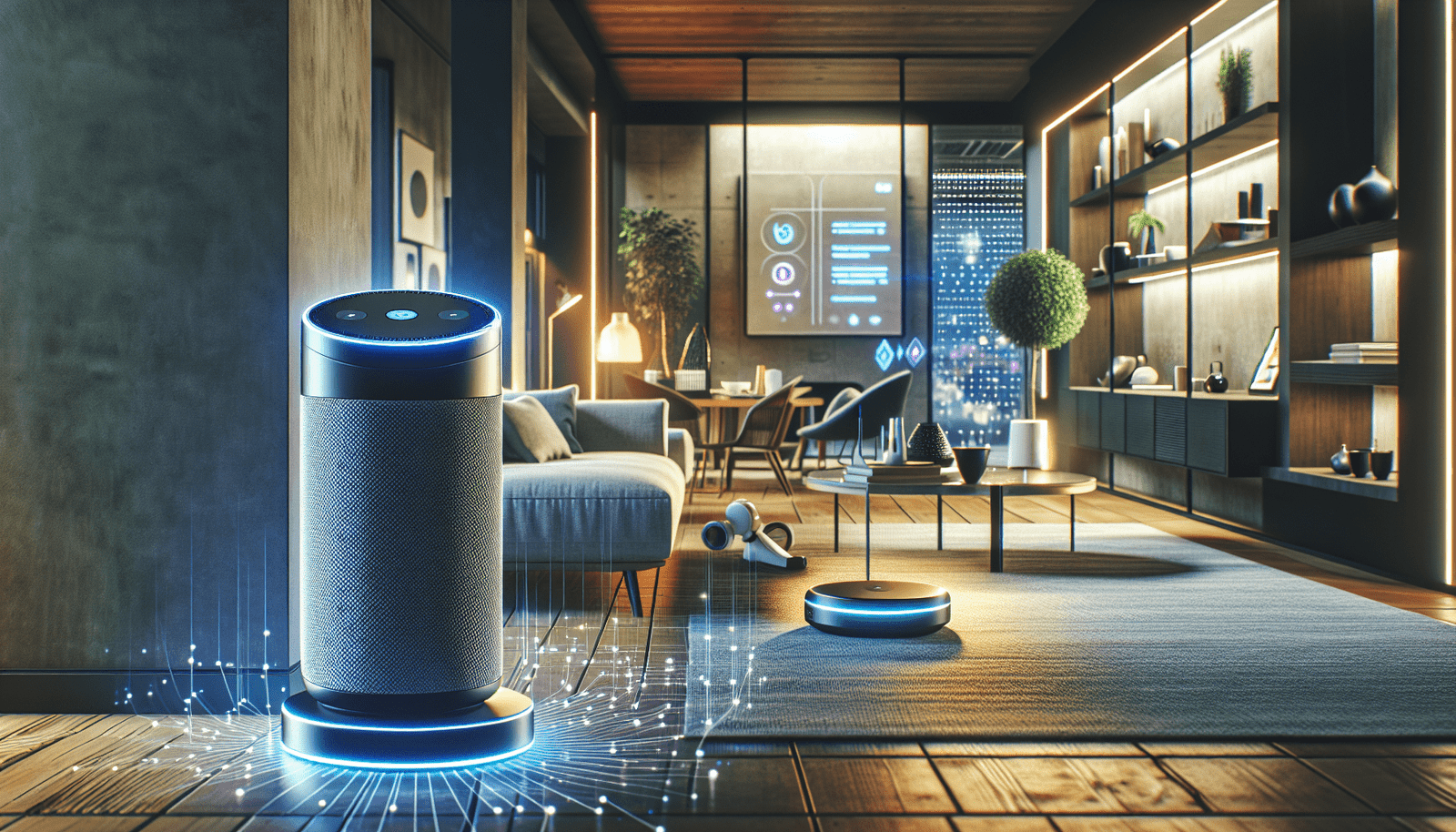Have you ever paused for a moment to think about how much automation has already permeated our daily lives? From the moment we wake up to the time we snuggle into bed, various automated processes work tirelessly in the background. It’s fascinating how technology continuously evolves, promising an even more automated future. In this article, I’d like to share my thoughts on the future of automation in everyday life and how it might change our routines.
Understanding Automation
Before we dive deeper into the future, it’s essential to clarify what automation actually means. Automation refers to the use of technology to perform tasks with minimal human intervention. It can range from simple tasks, like setting a timer on a coffee machine, to more complex systems like self-driving cars. Understanding the fundamental concept of automation sets the stage for discussing its future potential.
Historical Context
Reflecting on the history of automation, I am often amazed at how far we’ve come. The industrial revolution marked the beginning of automated systems in factories, transforming how goods were produced. Over the years, automation has advanced into our homes, gradually making its way into almost every facet of life. As I ponder this timeline, it becomes clear how automation’s trajectory has become increasingly intertwined with daily living.
Current State of Automation
Understanding where we currently stand with automation can offer insights into its future. Today, we embrace automation in numerous areas of our lives. I often find myself relying on automated systems in ways I didn’t even realize.
Home Automation
Home automation has gained immense popularity. Devices like smart speakers, thermostats, and security systems have transformed the way I manage my household. These systems allow for seamless control of various functions through my smartphone or voice commands, enhancing convenience tremendously.
| Device Type | Functionality |
|---|---|
| Smart Speakers | Voice-controlled assistants for music and information |
| Smart Thermostats | Automatic temperature regulation for energy efficiency |
| Smart Security Systems | Remote monitoring and alerts for home safety |
Workplace Automation
In the workplace, I see automation streamlining processes and enhancing productivity. Tasks such as data entry, scheduling, and inventory management are increasingly handled by automated systems. This shift not only saves time but also reduces the likelihood of human error.
Transportation Automation
One of the most exciting areas of automation is transportation. The development of autonomous vehicles has the potential to revolutionize how I commute. These self-driving cars promise improved safety, reduced traffic congestion, and optimized routes. As I think about it, living in a world where I can relax on my way to work sounds enticing.
Automation in Healthcare
In healthcare, automation also plays a pivotal role. I appreciate seeing how robots assist healthcare professionals with surgeries, data management, and patient monitoring. Automation has the potential to enhance patient care and improve outcomes significantly.
The Future of Automation: Trends to Watch
As I gaze into the future, it’s intriguing to contemplate the trends and advancements on the horizon for automation. These developments could reshape everyday life in ways we can only imagine.
Artificial Intelligence Integration
Artificial intelligence (AI) will drive much of the future automation I anticipate. By enabling machines to learn from data and make decisions, AI stands to revolutionize industries and personal lives alike. I can envision a future where my devices understand my preferences, adapting to my routines in real time.
Enhanced Personalization
I find the idea of enhanced personalization particularly exciting. Automation will allow for tailored experiences in several areas of life. For example, smart homes may learn my habits over time, adjusting lighting, temperature, and even entertainment options based on my preferences without me having to lift a finger.
| Area | Potential Impact |
|---|---|
| Smart Homes | Personalized comfort and convenience |
| Retail | Customized shopping experiences |
| Healthcare | Tailored treatments and proactive care |
Collaborative Robots (Cobots)
The rise of collaborative robots, or cobots, represents another fascinating trend. Unlike traditional industrial robots that operate independently, cobots are designed to work alongside humans. I can imagine a future where these robots assist me with tasks at home or provide support in various workplaces, enhancing efficiency and safety.
Virtual and Augmented Reality
Virtual and augmented reality technologies are also stepping into the automation scene. I envision a future where these technologies transform shopping, gaming, and even learning experiences. Imagine trying on clothes virtually before making a purchase or using augmented reality apps for an enhanced educational experience. The possibilities are truly exciting.
Benefits of Automation in Everyday Life
The future of automation holds numerous benefits that will make our lives more convenient and enjoyable. I find it essential to consider how these advantages might materialize in everyday tasks.
Improved Efficiency
One of the most significant benefits is improved efficiency. I often appreciate how automation can save me time in completing mundane tasks. Automation allows for faster execution, which leaves me with more precious moments to focus on the things I genuinely enjoy.
Increased Safety
In areas like transportation and healthcare, automation provides an edge in safety. Self-driving cars, for instance, reduce the chance of accidents caused by human error, while automated monitoring systems in healthcare ensure that patients receive attention promptly.
Cost Savings
Automation has the potential to lower costs in various sectors, which can ultimately benefit consumers like me. Businesses that adopt automated processes often experience reduced operational costs, resulting in lower prices for their products or services.
Enhanced Quality of Life
Perhaps the most significant advantage is the potential for an enhanced quality of life. The convenience offered by automation allows me to focus on enriching experiences rather than mundane tasks. I envision a future where automation liberates time and space in my daily life, leading to new opportunities for personal growth and leisure.
Challenges to Consider
While pondering the benefits of automation, it’s also vital to recognize the challenges that accompany this technological evolution. I believe addressing these issues is crucial to harnessing automation’s full potential in our lives.
Job Displacement
One of the most pressing concerns regarding automation is job displacement. As machines and software increasingly perform tasks once handled by humans, I often consider the impact on the job market. While new jobs will likely emerge, the transition may be challenging for many individuals. It’s essential for society to focus on retraining and reskilling.
Privacy and Security Concerns
With automation permeating our lives, privacy and security concerns are on the rise. As I utilize smart devices, I am increasingly aware of the potential data vulnerabilities. Ensuring that my personal information remains secure will be paramount as we navigate this automated future.
Dependence on Technology
As automation becomes more integrated into our lives, I wonder whether we might develop a dependence on technology. Striking a balance between leveraging automation and maintaining essential human skills will be vital to prevent over-reliance.
Preparing for an Automated Future
To fully embrace and benefit from the automation-driven future, it’s crucial for me to prepare in several ways. Taking proactive steps can help me navigate the changes gracefully.
Lifelong Learning
I believe that adopting a mindset of lifelong learning will empower me to keep pace with automation. As the job market evolves, continuously updating my skill set through courses and training will be vital. This commitment will allow me to adapt to shifting demands effortlessly.
Embracing Technology
Being open to embracing new technologies will make navigating an automated future smoother. I can start by incorporating more smart devices into my everyday life and learning how to maximize their functionality. Familiarizing myself with these advancements now can ease future transitions.
Advocating for Ethical Automation
As automation expands, I can actively engage in discussions about ethical automation practices. Advocating for regulations that protect consumer privacy, ensure fair labor practices, and democratize access to technology is crucial. By being part of this conversation, I can help shape a future that prioritizes humanity alongside automation.
Conclusion
Reflecting on the future of automation in everyday life, it becomes clear that we stand on the brink of an exciting new era. I feel a mix of anticipation and curiosity as I contemplate the possibilities that lie ahead. With innovations in artificial intelligence, enhanced personalization, and collaborative robots, the potential to improve my daily life is immense.
While the benefits of automation are compelling, I must also remain mindful of the challenges that accompany these changes. By preparing for the future through lifelong learning, embracing technology, and advocating for ethical practices, I can embrace the automation trend while ensuring it works for everyone.
In essence, I believe the future of automation will empower me to lead a more efficient, fulfilling life. The road ahead may be filled with both opportunities and challenges, but as I reflect on my journey, it’s clear that the future is bright, and I can’t wait to see where it leads.






